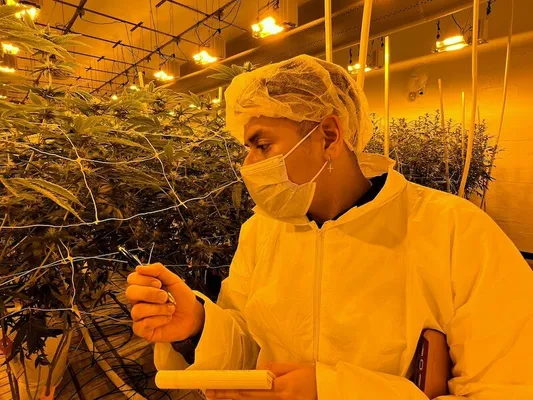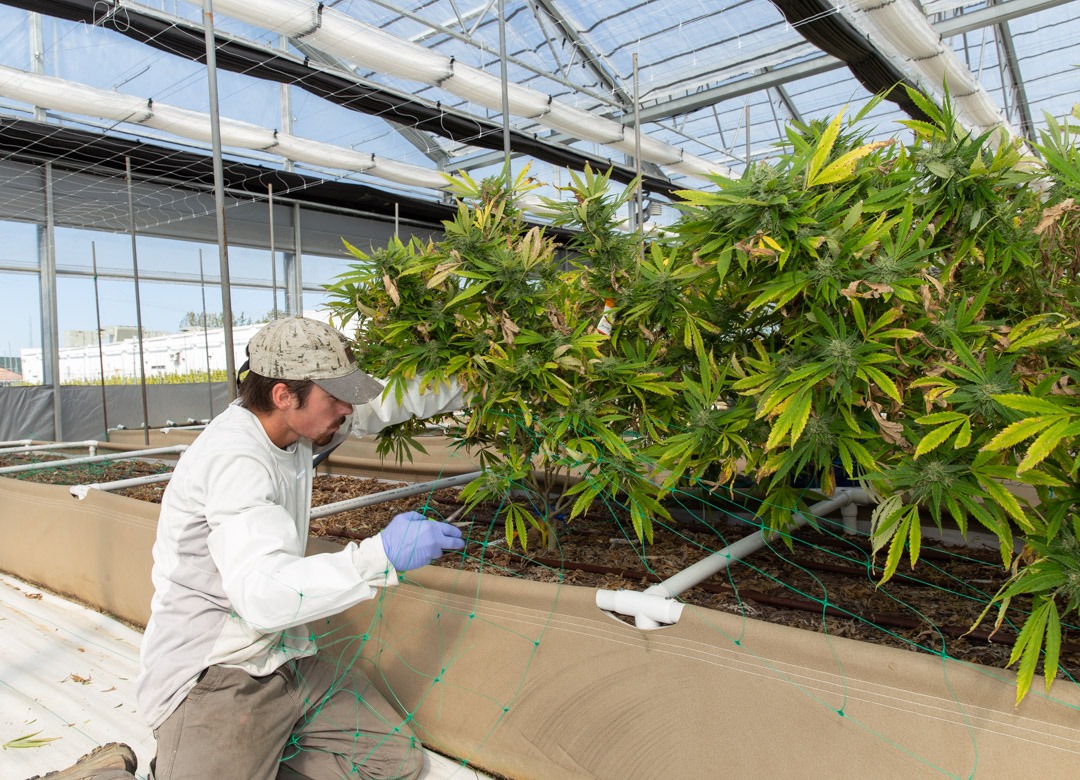An independent study conducted on energy efficiency in the cannabis industry has now showcased findings that cultivation facility managers and owners may find to be of interest.
On Wednesday, Dartmouth’s Thayer School of Engineering and Arthur L. Irving Institute for Energy and Society revealed the results of what has been described as the first-ever independent study on energy efficiency in the cannabis industry.
The study was conducted by six senior engineering students from Dartmouth who headquartered their research endeavour in the Cook Engineering Design Center at the New Hampshire institution.
Their work was carried out over a six-month period during the fall and winter semesters of the 2021-2022 academic year and was focused on finding a comprehensive cultivation system to fulfill plant and grower needs by focusing on yield per unit of energy, carbon emissions and overall operational costs.
Data needed for the new analysis was collected from grow facilities at MariMed Inc. (OTCQX: MRMD) and Culta — a multi-state cannabis company based in Norwood, Massachusetts and a Maryland-based outfit specializing in outdoor and indoor plants.

Photo via Dartmouth – Senior engineering student conducts research at Culta facility
Read more: PharmaCielo ships pre-commercial CBD isolate to Mexican pharmaceutical
Read more: Cannara helps bring Exotic Mike’s famous buds to Canada
This new study was sponsored by the Sustainable Cannabis Coalition, a group of companies working together to promote sustainability in cultivation, manufacturing and distribution within the industry.
The engineering scholars responsible for the study utilized methodology developed at the Rocky Mountain Institute (RMI), a multi-faceted organization dedicated to clean energy and combatting climate change. Through this knowledge pioneered by RMI they understood the key necessities for plants such as lighting, water and temperature requirements that would promote optimal growth.
The students also considered how plant needs can change throughout the course of the growth cycle and that heat and humidity loads can “vary by 10-fold” during the day-night schedule. To efficiently and accurately collect energy data while taking this into consideration the students solidified their analysis by meticulously monitoring grow lights, temperature control systems and humidity levels which then eventually yielded some noteworthy discoveries.
What they found was that using top-of-the-line light-emitting-diode (LED) lights can reduce cooling requirements by 10 per cent in comparison to average LED lights and 30 per cent when compared to High-Pressure Sodium (HPS) lighting.
Additionally, the students discovered that under “optimal minimum” conditions heating, ventilation, and air conditioning (HVAC) systems can reduce fan energy consumption by 50 per cent during the light cycle and 90 per cent during the dark cycle, particularly when a displacement ventilation method for humidity control is utilized.
“The students found that operators using LED lights can reduce energy use by 50 per cent with even greater savings for those using HPS systems. Even larger savings are likely available to the indoor cannabis industry overall since the scant data available suggests that industry-wide energy use intensity is 2-3X higher than the optimal minimum conditions needed for robust product production,” said Dr. Stephen Doig, Senior Research and Strategy Advisor at Dartmouth’s Irving Institute.
The researchers also found that using air-side economizers (or free outdoor cooling) would help diminish mechanical cooling requirements by 40 per cent or more depending on where a facility is located.
“This research provides an independent, fact-based analysis of the enormous potential for the cannabis industry to reduce both capital and operating costs while improving key metrics like grams of product per kilowatt hour of energy and grams of product per grams of CO2 emission,” added Dr. Doig.
The Dartmouth researchers say that although the study did not address capital expenses in detail the results of the analysis indicate that growers who utilize an optimal minimum approach for their production schedule will save on operational costs due to the new-found use of less or smaller HVAC systems helping produce the same product yields.
“As a company committed to improving people’s lives every day, we take our responsibility to help create a cleaner environment very seriously. Implementing Dartmouth’s recommendation to redesign cooling and dehumidification implementation and to install even higher-efficiency LED lighting in our facilities is just one of many initiatives we are considering as part of our sustainability efforts at MariMed,” said Tim Shaw, Chief Operational Officer at MariMed.
The Sustainable Cannabis Coalition plans to undertake further research endeavours between 2022-2023 in partnership with Dartmouth, RMI and other prominent industry organizations.
“Based on the success of this initiative, we are looking forward to extending the work with Dartmouth into additional new-build opportunities, retrofits, and developing consistent industry metrics for energy efficiency and greenhouse gases,” said Shawn Cooney, Co-Founder of the Sustainable Cannabis Coalition.












